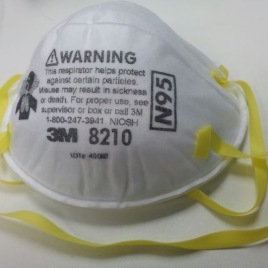Respirators and surgical masks both help protect health workers from respiratory infections, however there has been a debate about which is more effective and different guidelines provide different recommendations. A review of the accumulated evidence does not suggest that the N95 respirator is superior to surgical masks. The authors suggest a randomized controlled trial, […]
Tag: health
Urgent action needed against mycotoxin contamination
The International Association for Research on Cancer is urging action against widespread mycotoxin contamination in developing countries. More than 500 million people are being exposed to fungal toxins, which can cause illness and even death. Dr. David Miller, from Carleton University, is the chair of the working group. Original research published by the International Agency for Research on […]
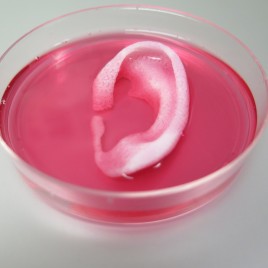
Printing living bones may be possible
Printing bones and cartilage could be the way of the future. Using specialized ‘bioprinters’, researchers have been able to “print” cells into layered patterns reconstructing human body parts. Current 3D printers are unable to create bone and cartilage with enough structural stability. By combining bioprinters with biodegradable polymer materials researchers were able to “create” the […]
Something’s fishy about childhood obesity
Eating fish more than three times a week during pregnancy is associated with an increased risk of childhood obesity, according to the results of a new study. Women who ate fish more than three times per week were more likely to give birth to children with higher BMI values at ages two, four, and six. […]
Losing money to lose weight
Paying employees to exercise doesn’t work, but taking money away might, according to a new study. Removing a small amount from a cash reward given upfront was more effective at promoting daily physical exercise than receiving a small reward for meeting physical activity goals. Participants in a 13-week physical activity program were given a goal […]
Visualizing the blood-brain barrier
Using a microscope to see inside living tissue, researchers have found how the parasite Toxoplasma gondii passes through the blood brain barrier to invade the central nervous system. The researchers hope this finding will help develop effective strategies to stop the parasite from entering and damaging the brain. T. gondii infects about 30 per cent of […]

How bears gain weight without getting obese
Bears eat intensively to put on weight for winter hibernation but don’t seem to suffer the negative health effects of obesity, thanks to the microbiota in their digestive tract. By analyzing fecal samples researchers found the microbiota in a bear’s digestive tract changes when the bear is preparing for hibernation. The researchers believe some of […]
Lab in a suitcase provides real-time monitoring of Ebola 
Testing the DNA of the Ebola virus on-site in the field in less than a day is now possible thanks to a new system developed by researchers. Real-time genomic surveillance will provide information on the virus and its rate of evolution – as well as characterizing its response to treatments and vaccines. The kit weighs […]
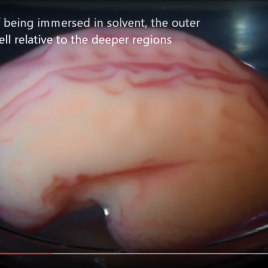
Why the brain has its folds
The folds on the surface of the human brain exist because of physics, not biology, according to a new study using 3D printing. The researchers believe their results suggest that physical forces play a crucial role in neurodevelopment, and may provide insights into diagnosing and treating some neurological disorders. The study proves a model from […]
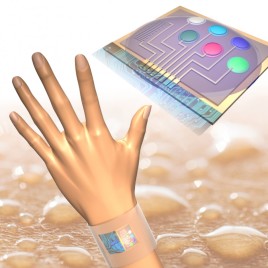
Monitoring biomarkers in real-time
Wearable sensors which measure levels of molecules in a patient’s sweat are now able to provide real-time information on an individual’s physiology and health. Sweat contains much information in the form of metabolites such as glucose, and electrolytes such as sodium, which could be used to help diagnose diseases or identify drug use. The developers […]
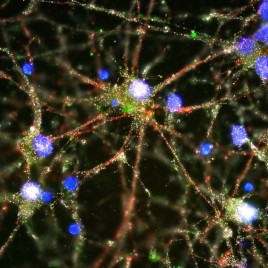
Genetically mapping the cause for schizophrenia’s synaptic loss
Mapping genetic variations has allowed researchers to identify a potential mechanism to explain the onset of schizophrenia. The authors hope this will provide insights into the risk of developing schizophrenia as well as the neurobiology of the disease. Variations in the genetic code controlling the production of C4, a protein known for the role it […]
Some antibiotics are increasing children’s’ health risks
Using a specific group of antibiotics changes the gut microbiota in children, leading to an increased risk of developing asthma and becoming overweight, according to a new study. This group of antibiotics, macrolides, are used as an alternative for individuals who are allergic to penicillin. Researchers analysed the fecal microbiota of 142 children (aged two […]
Studying autism with genetically modified monkeys
Genetically modified monkeys showing autism-like behaviours could help the development of strategies to treat the symptoms of autism disorders, according to researchers. Currently one of the major challenges for researchers studying autism spectrum disorders is the lack of animals models that reproduce symptoms typically found in human patients. These monkeys, and their offspring, show behavioural […]
Preparing stem cells with electricity is good for the heart
For the first time researchers have shown that stimulating cardiac muscle cells, derived from stem cells, with electrical impulses improves their development and function. Providing these cells with the improved function could potentially help treat cardiovascular disease, one of the world’s major illnesses, as it may provide a way to regenerate heart muscle. When stimulated […]
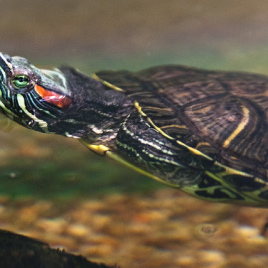
The secret to surviving without oxygen
The Red-eared slider, a species of turtle, is able to survive months of low oxygen, without apparent damage to the brain tissue. Researchers believe they have now found the secret to this ability in the mitochondria of the brain cells. The mitochondria, where the respiration and energy processes of the brain take place, of Red-eared […]
Mammals, including humans, shape their microbiome
Humans create small molecules inside the GI tract to help regulate the composition of gut microbes and to protect against intestinal diseases. The researchers believe the findings of the study reveal a host defense mechanism and show that microRNAs can be used to regulate the microbiome of individuals. The researchers found microRNAs produced by intestinal cells in both mice and humans regulate the activity […]
